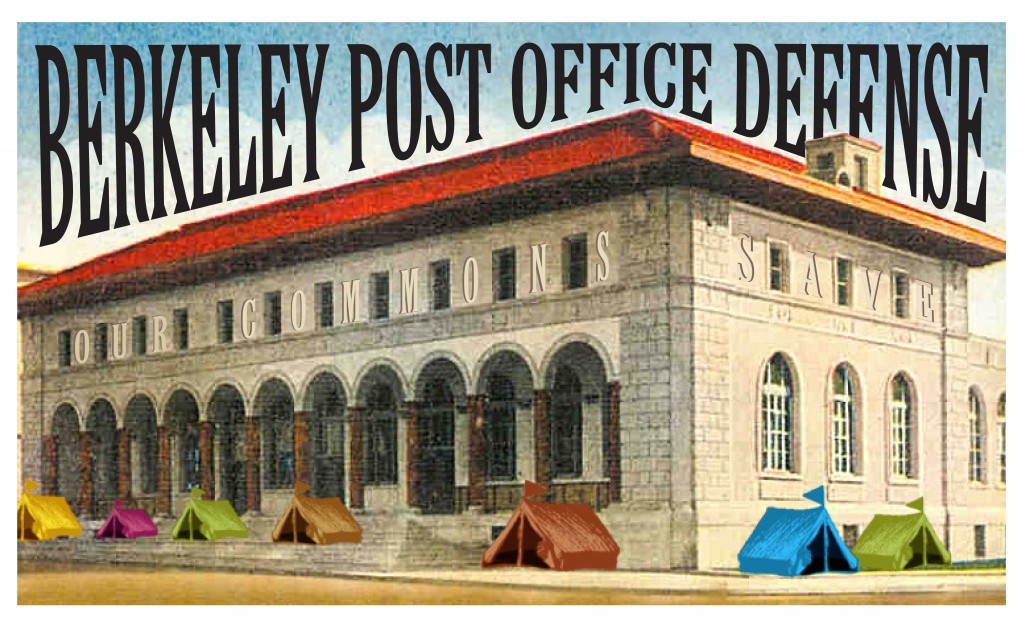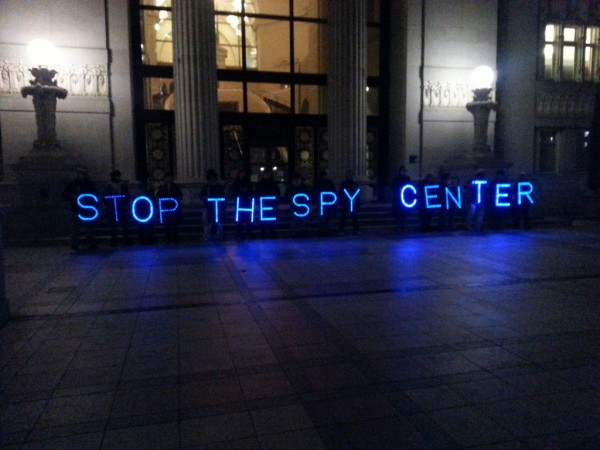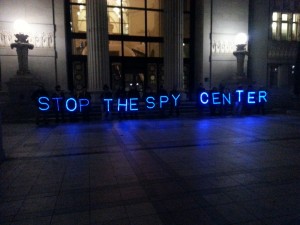Calendar
Agenda includes preparations for the Board of Governors meeting on November 17th
Devoted to understanding debt, how it interacts with our financial system, and theorizing about what to do about it.
Readings for the 29th:
http://www.pieria.co.uk/articles/martin_wolf_proposes_the_death_of_banking
http://coppolacomment.blogspot.co.uk/2012/10/the-imf-proposes-death-of-banking.html
Do we really care who creates money?
Below is the Wolf article the first link refers to. All 3 of these together really isn’t very long. Also, we can review the last reading (found here), which still has a lot to it that is not quite clear.
Strip private banks of their power to create money
By Martin Wolf
The giant hole at the heart of our market economies needs to be plugged
Printing counterfeit banknotes is illegal, but creating private money is not. The interdependence between the state and the businesses that can do this is the source of much of the instability of our economies. It could and should be terminated.
I explained how this works two weeks ago. Banks create deposits as a byproduct of their lending. In the UK, such deposits make up about 97 per cent of the money supply. Some people object that deposits are not money but only transferable private debts. Yet the public views the banks’ imitation money as electronic cash: a safe source of purchasing power.
Banking is therefore not a normal market activity, because it provides two linked public goods: money and the payments network. On one side of banks’ balance sheets lie risky assets; on the other lie liabilities the public thinks safe. This is why central banks act as lenders of last resort and governments provide deposit insurance and equity injections. It is also why banking is heavily regulated. Yet credit cycles are still hugely destabilising.
What is to be done? A minimum response would leave this industry largely as it is but both tighten regulation and insist that a bigger proportion of the balance sheet be financed with equity or credibly loss-absorbing debt. I discussed this approach last week. Higher capital is the recommendation made by Anat Admati of Stanford and Martin Hellwig of the Max Planck Institute in The Bankers’ New Clothes.
A maximum response would be to give the state a monopoly on money creation. One of the most important such proposals was in the Chicago Plan, advanced in the 1930s by, among others, a great economist, Irving Fisher. Its core was the requirement for 100 per cent reserves against deposits. Fisher argued that this would greatly reduce business cycles, end bank runs and drastically reduce public debt. A 2012 study by International Monetary Fund staff suggests this plan could work well.
Similar ideas have come from Laurence Kotlikoff of Boston University in Jimmy Stewart is Dead, and Andrew Jackson and Ben Dyson in Modernising Money. Here is the outline of the latter system.
First, the state, not banks, would create all transactions money, just as it creates cash today. Customers would own the money in transaction accounts, and would pay the banks a fee for managing them.
Second, banks could offer investment accounts, which would provide loans. But they could only loan money actually invested by customers. They would be stopped from creating such accounts out of thin air and so would become the intermediaries that many wrongly believe they now are. Holdings in such accounts could not be reassigned as a means of payment. Holders of investment accounts would be vulnerable to losses. Regulators might impose equity requirements and other prudential rules against such accounts.
Third, the central bank would create new money as needed to promote non-inflationary growth. Decisions on money creation would, as now, be taken by a committee independent of government.
Finally, the new money would be injected into the economy in four possible ways: to finance government spending, in place of taxes or borrowing; to make direct payments to citizens; to redeem outstanding debts, public or private; or to make new loans through banks or other intermediaries. All such mechanisms could (and should) be made as transparent as one might wish.
The transition to a system in which money creation is separated from financial intermediation would be feasible, albeit complex. But it would bring huge advantages. It would be possible to increase the money supply without encouraging people to borrow to the hilt. It would end “too big to fail” in banking. It would also transfer seignorage – the benefits from creating money – to the public. In 2013, for example, sterling M1 (transaactions money) was 80 per cent of gross domestic product. If the central bank decided this could grow at 5 per cent a year, the government could run a fiscal deficit of 4 per cent of GDP without borrowing or taxing. The right might decide to cut taxes, the left to raise spending. The choice would be political, as it should be.
Opponents will argue that the economy would die for lack of credit. I was once sympathetic to that argument. But only about 10 per cent of UK bank lending has financed business investment in sectors other than commercial property. We could find other ways of funding this.
Our financial system is so unstable because the state first allowed it to create almost all the money in the economy and was then forced to insure it when performing that function. This is a giant hole at the heart of our market economies. It could be closed by separating the provision of money, rightly a function of the state, from the provision of finance, a function of the private sector.
This will not happen now. But remember the possibility. When the next crisis comes – and it surely will – we need to be be ready.

THE POSTAL SERVICE HAS THE BERKELEY POST OFFICE “UNDER CONTRACT.” !!!!!!!!!!!
THE POSTAL SERVICE WANTS TO SELL THE POST OFFICE TO HUDSON-MCDONALD DEVELOPMENT GROUP.
THE CITY OF BERKELEY HAS SUED THE POST OFFICE TO STOP THE SALE.
THE HEARING TO GRANT A RESTRAINING ORDER AGAINST THE SALE WILL HAVE BEEN MONDAY MORNING.
Come learn about what happened in court and help us plan our next steps in opposition to this theft of our public commons.
Get an overview of the sale announcement here.
Here’s a good more general overview piece.
Also CHECK OUT OUR WEBSITE. and the Save the Berkeley Post Office website, and First they Came for the Homeless Facebook for updates.
BPOD is an offshoot of Strike Debt Bay Area, which itself is an offshoot of Occupy Oakland and a chapter of the national Strike Debt movement, which is an offshoot of Occupy Wall Street.
Please come to help organize for the Board of Governors meeting on November 17th to say the STWEP MUST GO!
TELL BOG TO REINSTATE CCSF BOT
The California Community College Board for Governors will be considering a plan that delays restoration of the CCSF Board of Trustees at least 18 months. We demand that they be immediately restored. Join us to let them know that the (Special Trustee With Extraordinary Powers)
STWEP MUST GO!
Meeting of the City of Oakland’s “Privacy and Data Retention Ad Hoc Advisory Committee” – open to the public.
When:
2nd & 4th Thursdays
6:00pm – 8:00pm
Where:
Council Chambers
Oakland City Hall
14th & Broadway
Read the announcement from the City of Oakland City Administrator’s Weekly Report (April 25, 2014):
This committee was created by City Council action during the discussions earlier in the year about the Port Domain Awareness Center (DAC). The goal of the DAC is to improve readiness to prevent, respond to and recover from major emergencies in the Oakland region and ensure better multi-agency coordination across the larger San Francisco Bay Area. The goal of the Privacy and Data Retention Policy is to ensure there are safeguards to protect against potential misuse of the data or violations of individuals’ privacy rights and civil liberties. The meeting is open to the public. For questions about the Ad Hoc Committee, please contact Joe DeVries, Assistant to the City
We need to show up to these meetings and pressure the City to adopt a privacy policy that makes privacy a priority, not only “security” or administrative convenience.

 Come get connected with SDBA’s many projects:
Come get connected with SDBA’s many projects:- organizing for public banking in Oakland
- saving the Berkeley Post Office and stopping the Staples non-union takeover of good Post Office jobs
- working with the City of Richmond and other municipalities for eminent domain seizure of underwater mortgages from the banksters
- ongoing study group
- distribution of Debt Resisters’ Operations Manual
- student debt resistance
- helping out America’s only non-profit check-cashing organization and fighting against usurious for-profit pay-day lenders and their ilk
- our famous Strike Debt radio program
- and much more!
#OccupyWheeler GA happening at 8 tonight! Big decisions to be made! #occupycal #FightTheHike #takebackyourtuition @theopenuc @bpoffcampus
— OCCUPY CAL (@OccupyCalCampus) November 23, 2014
GA tonight at 8 in Wheeler Commons. Main issue: updates and finalize Walk Out tomorrow! #openuc #FightTheHike #FundOurfuture
— CalProgressives (@CalProgressives) November 23, 2014

MEETING CANCELLED TODAY!
THE POSTAL SERVICE HAS THE BERKELEY POST OFFICE “UNDER CONTRACT.” !!!!!!!!!!!
THE POSTAL SERVICE WANTS TO SELL THE POST OFFICE TO HUDSON-MCDONALD DEVELOPMENT GROUP.
THE CITY OF BERKELEY HAS SUED THE POST OFFICE TO STOP THE SALE. A TEMPORARY RESTRAINING ORDER IS IN PLACE UNTIL DECEMBER 17th.
A hearing will take place in Federal Court on December 11th.
Come learn about continuing developments and help us plan our next steps in opposition to this theft of our public commons.
Get an overview of the sale announcement here.
Here’s a good more general overview piece.
Davic Rovics gave a concert on the Post Office steps last Monday. Check out pictures and video of him playing.
Also CHECK OUT OUR WEBSITE. and the Save the Berkeley Post Office website, and First they Came for the Homeless Facebook for updates.
BPOD is an offshoot of Strike Debt Bay Area, which itself is an offshoot of Occupy Oakland and a chapter of the national Strike Debt movement, which is an offshoot of Occupy Wall Street.
The Occupation of Wheeler Hall, and the fight against tuition increases and privatization continues.
http://theopenuc.wordpress.com/events/
Meeting of the City of Oakland’s “Privacy and Data Retention Ad Hoc Advisory Committee” – open to the public.
When:
2nd & 4th Thursdays
6:00pm – 8:00pm
Where:
Council Chambers
Oakland City Hall
14th & Broadway
Read the announcement from the City of Oakland City Administrator’s Weekly Report (April 25, 2014):
This committee was created by City Council action during the discussions earlier in the year about the Port Domain Awareness Center (DAC). The goal of the DAC is to improve readiness to prevent, respond to and recover from major emergencies in the Oakland region and ensure better multi-agency coordination across the larger San Francisco Bay Area. The goal of the Privacy and Data Retention Policy is to ensure there are safeguards to protect against potential misuse of the data or violations of individuals’ privacy rights and civil liberties. The meeting is open to the public. For questions about the Ad Hoc Committee, please contact Joe DeVries, Assistant to the City
We need to show up to these meetings and pressure the City to adopt a privacy policy that makes privacy a priority, not only “security” or administrative convenience.


THE POSTAL SERVICE HAS THE BERKELEY POST OFFICE “UNDER CONTRACT.” !!!!!!!!!!!
THE POSTAL SERVICE WANTS TO SELL THE POST OFFICE TO HUDSON-MCDONALD DEVELOPMENT GROUP.
THE CITY OF BERKELEY HAS SUED THE POST OFFICE TO STOP THE SALE. A TEMPORARY RESTRAINING ORDER IS IN PLACE UNTIL DECEMBER 17th.
A hearing will take place in Federal Court on December 11th.
Come learn about continuing developments and help us plan our next steps in opposition to this theft of our public commons.
Get an overview of the sale announcement here.
Here’s a good more general overview piece.
Davic Rovics gave a concert on the Post Office steps last Monday. Check out pictures and video of him playing.
Also CHECK OUT OUR WEBSITE. and the Save the Berkeley Post Office website, and First they Came for the Homeless Facebook for updates.
BPOD is an offshoot of Strike Debt Bay Area, which itself is an offshoot of Occupy Oakland and a chapter of the national Strike Debt movement, which is an offshoot of Occupy Wall Street.
General Assembly tonight at 8 in #WheelerCommons
#FightTheHike
— Open UC (@theopenuc) December 2, 2014
The Oscar Grant Committee Against Police Brutality & State Repression (OGC) is a grassroots democratic organization that was formed as a conscious united front for justice against police brutality. The OGC is involved in the struggle for police accountability and is committed to stopping police brutality.
Our mission is to educate, organize and mobilize people against police and state repression. Sisters and brothers the Oscar Grant Committee invites you to join us in this vital struggle.
There will be three meetings of this class, on Wednesdays at 7 pm – Dec. 3, 10, and 17.
This class will investigate the structure of prison from three perspectives:
- Its ethics,
- Its inherent criminality as a system,
- Its role in the structures of racialization in the US.
Today, we live in a society in political and ethical crisis because it has instituted a revenge ethic and a desire to place people in internal exile in the place of justice and humanism. Having done so, it has created the largest prison system in the world.
Each of these perspectives cries out for the abolition of prisons. The structures of racialization in the US have always depended on a prison system. The topic of the “new Jim Crow” will not only encompass a discusstion of Michelle Alexander’s book by that title, but also the accumulating material evidence that Jim Crow has become our re-institutionalized reality.
Consider this:
The Broken Window theory, by which William Bratton turned New York City into a police state under the heel of “stop and frisk,” can stated as follows: “Even one broken window creates the condition for anti-social behavior.”
The ethics of prison abolition echoes in response to this: “The violence of even one person thrown in a cage by political authority creates the condition for violent behavior.”
The class will address questions such as the following:
1- what is the real structure of imprisonment, and what are the ethics of each of its components?
2- what is the political structure of the prison, and how does it relate to both its structural ethics, to the ideal of human rights, and to the society that we live in.
3- what structures does the political domain us to inhale people into its prison system, to remove them from their communities and habitats, and often to punish them for their attempts to survive physically and psychically?
4- what is the nature of punishment, and why is it even a social or cultural value?
5- what is the connection between social violence, victimless crime laws, and capitalism?
6- what dimensions of the present US prison system could be abolished right now, in the interest of justice, and what does it imply about this society that it refuses to do it?
7- what is the cyclic relation between slavery, prison labor, debt servitude, the prison industry, and Jim Crow?
8- with the prison industry actually materializing a foundation for a New Jim Crow (in Michelle Alexander’s sense), what evidence do we see of the government’s actual success in re-institutionalizing Jim Crow?
9- what is the structure of “racialization” in the US, what role did the former Jim Crow play in it, and what role does the prison today play in it?
If you are interested, contact me for links to some reading, or just show up on Dec. 3.
Steve Martinot
martinot4 [at] gmail.com
Last time we read Positive Money’s proposal for an alternative banking system, parts 1-4. This week we’ll finish discussing it, with parts 5-6.
Aloha.
The Politics of Debt Reading Group is a joint effort of the Bay Area Public School and Strike Debt Bay Area.
Recent events in Ferguson have exposed shared struggles around the world, particularly in Haiti: struggles against militarization and a system of injustice.
Join us as we make connections, and discuss the work we can do right here!
Update, Dec. 7, 2:43 a.m. According to reports from the scene, many of the protesters have dispersed. Some have called for supporters to meet Sunday at 1 p.m. at Sproul Plaza on the UC Berkeley campus to continue their efforts. Stay tuned to #BerkeleyProtest for live updates.
Meeting tomorrow at 1 o clock on Sproul. #berkeleyprotest
— Sahil Chinoy (@sahilchinoy_dc) December 7, 2014
